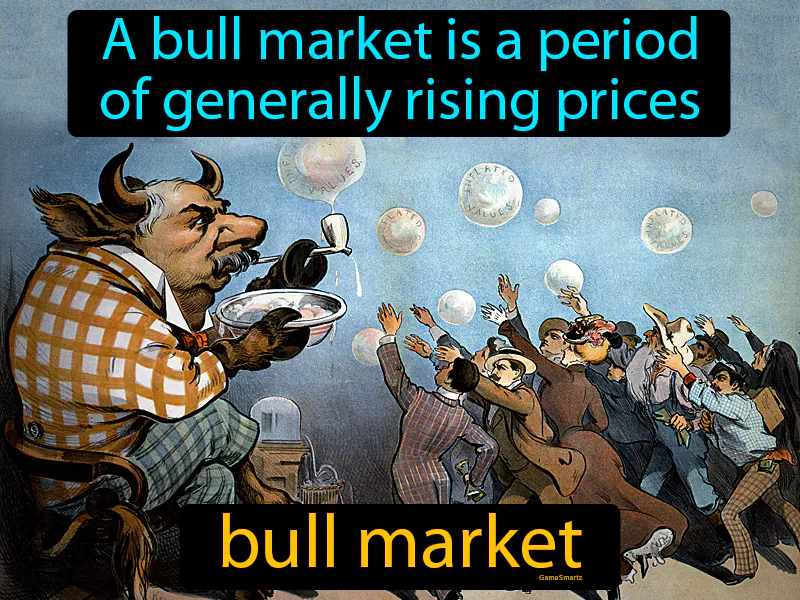Bull Market
Bull Market: Easy to understand
In the 1920s, the U.S. experienced a bull market as stock prices rose significantly, driven by economic growth and optimism after World War I. This period, known as the "Roaring Twenties," saw many Americans investing in stocks, leading to a sense of prosperity and increased consumer spending. However, the bull market also led to excessive speculation and risky financial behavior, which eventually contributed to the stock market crash of 1929 and the Great Depression. Today, bull markets still matter because they can affect our savings, investments, and job opportunities, as many people's retirement funds and businesses are tied to the stock market's performance. For example, if your parents have a retirement account invested in stocks, a bull market could increase its value, potentially affecting their financial plans for the future.

Practice Version

Bull Market: A period of generally rising prices. Bull market. A bull market is a time when stock prices are going up steadily and people feel positive about the economy.